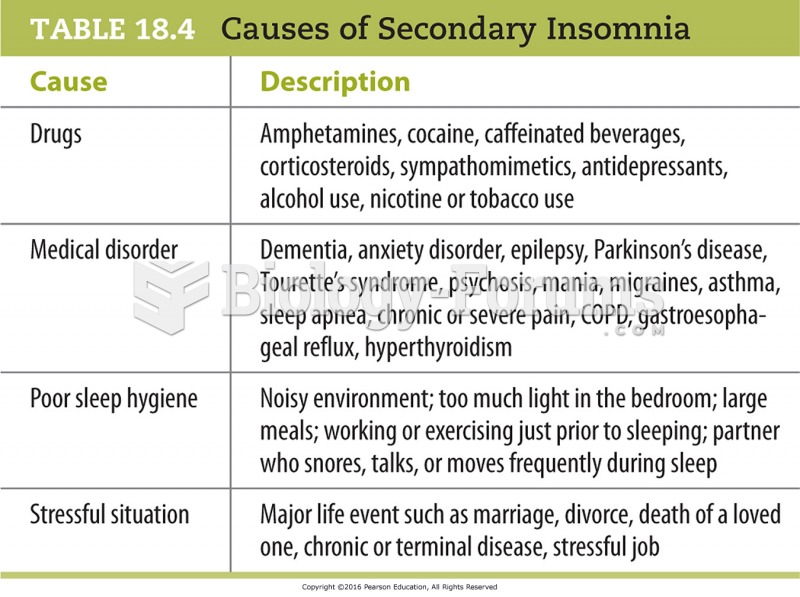Answer to Question 1
Correct Answer: 1,3,4,5
Rationale 1: Traumatic brain injury is a finding associated with development of secondary Parkinson disease.
Rationale 2: A family history of the disorder is not associated with development of secondary Parkinson disease.
Rationale 3: Brain tumor is a finding associated with development of secondary Parkinson disease.
Rationale 4: Exposure to toxins is a finding associated with development of secondary Parkinson disease.
Rationale 5: A brain infection is a finding associated with development of secondary Parkinson disease.
Global Rationale: Traumatic brain injury, a brain tumor, exposure to toxins, and a brain infection are all findings associated with development of secondary Parkinson disease. A family history of the disorder is not associated with development of secondary Parkinson disease.
Answer to Question 2
Correct Answer: 1
Rationale 1: Alzheimer disease is a degenerative disorder characterized by progressive memory loss, confusion, and inability to think or communicate clearly and effectively.
Rationale 2: Parkinson disease is not characterized by confusion, progressive memory loss, and the inability to think clearly.
Rationale 3: Schizophrenia is not characterized by confusion, progressive memory loss, and the inability to think clearly.
Rationale 4: Huntington chorea is not characterized by confusion, progressive memory loss, and the inability to think clearly.
Global Rationale: Alzheimer disease is a degenerative disorder characterized by progressive memory loss, confusion, and inability to think or communicate clearly and effectively. Parkinson disease, schizophrenia, and Huntington chorea are not characterized by confusion, progressive memory loss, and the inability to think clearly.







